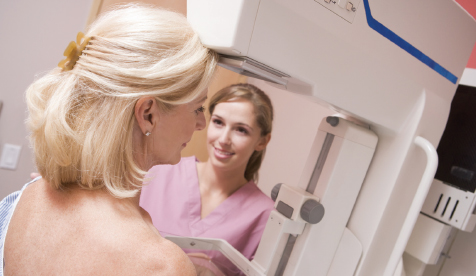Statistics from the American Cancer Society show that you have a one in eight chance of having invasive breast cancer in your lifetime.
Overall death rates have been declining for over two decades due to early screening options, increased awareness and enhanced treatment options.
While there are no guaranteed ways to prevent breast cancer, there are steps that you can take to reduce your risk.
Identifying Genetic Risk
Your breast cancer risk is increased if a family member has been diagnosed with breast cancer, especially if a first-degree relative (mother, sister) is diagnosed before the age of 50.
Genetic mutations, such as BRCA, are the most common mutations known to be linked to a hereditary breast cancer. Inheriting these gene mutations increases your lifetime risk of developing breast cancer by as much as 80 percent. Breast cancer often occurs at a younger age, is more aggressive, and can be associated with developing into other forms of cancer.
Genetic testing for these mutations involves a blood sample taken at a doctor’s office. Most insurance companies will cover the cost of the genetic testing if there is a personal or family history of cancer.
Preventive Measures
Preventive measures, such as regular checkups and mammograms, are particularly important if you have a strong family history of breast cancer or have had a benign breast disease. Our practice recommends mammograms to begin at the age of 40. Some women, due to family history, genetic predisposition to breast cancer or other factors, may need to be screened at an earlier age. Consult with your health care provider for additional guidance.
Healthy Body Weight
Aim for a Body Mass Index under 25. Research shows that fat tissues produce an excess amount of estrogen that is directly linked to an increase in breast and endometrial cancers.
Keep Active
An exercise program may reduce your risk of breast cancer up to 30 percent by helping to maintain a healthy weight. It is recommended that you engage in 30 minutes of physical activity at least five days a week.
Limit Alcohol Consumption
Large consumption of alcohol (2+ drinks a day) is associated with an increase in breast cancer. Limit your alcohol consumption to one drink per day.
Don’t Smoke
Stop smoking immediately to reduce your risk for breast cancer. In addition, smoking is a risk factor for lung cancer.
Nutrition
Consume as many vegetables and fruits as possible. The top vegetables for breast cancer protection include cruciferous vegetables (broccoli, cabbage); dark leafy greens (arugula, collards, kale, spinach); carrots and tomatoes. The top fruits include citrus, berries and cherries. Fiber aids your body in the reduction of breast cancer risk by naturally removing estrogen in the body. Aim for at least 30 grams of fiber a day. Diets rich in fiber have been shown to provide a breast cancer risk reduction up to 32 percent.
James Hathorn, MD, is an oncologist at Regional Cancer Care, a private oncology practice that focuses on providing state-of-the-art oncology and hematology care, along with genetic cancer screening. regionalcancercare.net






